Vietnam’s transport sector seeking recovery and reboot
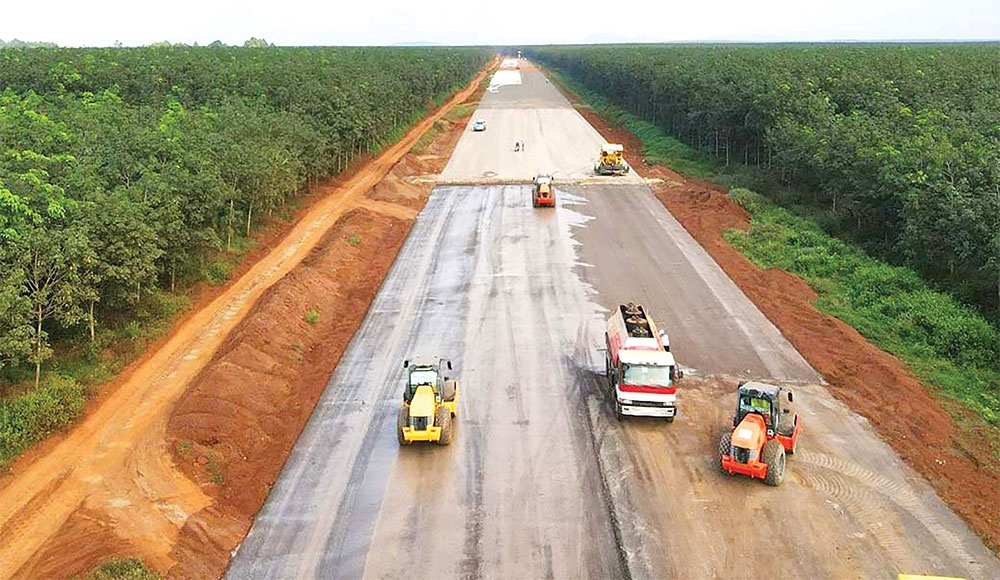 |
| Last year saw the start of a number of key national projects in terms of major roads, bridges, and airport infrastructure, Le Toan |
Nguyen Canh Tinh, CEO of shipping giant Vietnam International Maritime Corporation (VIMC), is satisfied with performance in 2022. The company made consolidated revenues of $653.9 million, up 5 per cent on-year and surpassing the yearly target by 20 per cent. Consolidated profit reached $136 million, surpassing the yearly target by 24 per cent.
“VIMC made positive results in 2022 despite the challenges of the maritime industry due to the Ukraine conflict, Chinese pandemic policy, high inflation and others,” Tinh said earlier in January.
Tinh added that profits of the shipping segment reached nearly $82.6 million, up 74 per cent from 2021 and surpassing the yearly target by 44 per cent. Some shipping subsidiaries of VIMC improved performance include Vosco, VIMC Shipping, and Vinaship.
Similarly, the country’s state-owned railway giant Vietnam Railways (VNR), after years of suffering losses, witnessed a recovery in 2022 when revenues rose 13.8 per cent on-year and surpassed the yearly target by 15.8 per cent, to over $335 million.
“VNR made a profit from cargo transport last year. We opened new cargo routes to the international market during the year, while increasing partnership with local partners to increase the volume of cargo,” said Dang Sy Manh, said general director of VNR. “We expect better performance this year when domestic and global economy recover strongly.”
In the aviation segment, Airports Corporation of Vietnam (ACV) hit revenues of $668.7 million, doubling that in 2021 and surpassing the yearly target by 49 per cent; while pre-tax profit reached $328.7 million, a 10-fold increase from the previous year. Moreover, domestic passenger volume increased by 21 per cent compared to pre-2020.
This year, ACV aims for on-year increases of 18 per cent in the total number of passengers and cargo transport; as well as rises of 20 per cent and 11 per cent in revenues and pre-tax profit, respectively.
In terms of transport, meanwhile, Vietnam Expressway Corporation (VEC) fetched around $193 million in revenues from toll collection alone in 2022, up 36 per cent from 2021, thus contributing to increase the company’s total revenue to $233 million, surpassing the yearly target of $176 million.
According to VEC’s 2022 business report, the volume of vehicles on expressways managed by VEC increased by over 40 per cent on-year.
Stiff competition
In addition to strong recovery among key players, disbursement of public investment was a spotlight in industry during the year. The Ministry of Transport (MoT) continues to lead ministries and agencies as it disbursed about $2.3 billion, or 96 per cent of the plan assigned earlier.
Last year, the transport sector kicked off 18 projects and completed 22 others, including a number of key national projects. Specifically, it put into operation some component projects of the North-South Expressway, runways and taxiways at Noi Bai and Tan Son Nhat airports, and more. It also kicked off the T3 passenger terminal at Tan Son Nhat, and is continuing progress with the future Long Thanh International Airport.
Some shortcomings are still facing the sector and companies are urging government agencies to press ahead with policies that can increase operational efficiency.
Tinh from VIMC admitted, “The company is facing stiffening competition in the port segment as many new ports have been put into operation, leading to a surplus of facilities. Meanwhile, equipment and infrastructure systems at many ports of ours still lack synchronisation. The port access channel has also not been dredged in a timely manner, affecting its competitiveness.”
For VNR, downgraded infrastructure has been a thorny issue for years, making it difficult to increase passenger transport. Meanwhile, state funding for the industry remains timid, meeting only 5 per cent of its demands. Worse still, the industry is lacking policies for attracting private investment in various ventures.
According to Manh, VNR is still waiting for approval of a master plan to govern the management and use of railway infrastructure assets. This plan, in which VNR proposes the MoT to hand over station squares, warehouses, inland container depots, and others to the giant to develop, is hoped to be a driving force for VNR to improve operations and investment attraction.
Worse still, attracting domestic and private investment in the transport sector remains a tough task despite growing interest among them.
Tran Chung, chairman of the Vietnam Association of Road Systems Investors, told VIR, “Private businesses are strongly interested in transport projects. However, the sector has not yet attracted much domestic private and international investment due to legal problems, especially those related to the public-private partnership (PPP) model. Unless all are solved, attraction will remain out of reach.”
Under the road development plan for this decade and with a vision towards 2050, the country aims to have over 9,000km of expressway and nearly 30,000km of national highways by 2050. Total investment for road network development by 2030 is estimated at $39 billion, of which $31.65 billion is for expressway projects.
Raising new funds
The Department for Roads of Vietnam in late 2022 asked the MoT to consider some measures to increase attraction of transport projects in the PPP model.
In particular, they include adjusting the return on equity to about 15-18 per cent depending on regions and areas from the current 11-14 per cent, or equal to 1.3-1.5 times the bank deposit interest rate; and adjusting the road toll in accordance with prevailing rules, and contracts in accordance with the socioeconomic development situation.
Moreover, cities and provinces that enjoy economic growth thanks to PPP transport projects are proposed to have policies to allocate a part of the state budget collection for such projects to help them shorten the investment return period.
During construction, if an investor has solutions about new technology and construction materials to reduce cost and increase project efficiency, they should be allowed to enjoy the difference between approved prices in the contract and actual prices, the department said.
Toll collection should be allowed for state-funded expressways, making it a basis for investors participating in the franchise of toll collection; and toll collection should be allowed to continue build-operate-transfer expressways after their investment return period to enable them to generate revenues for future funding in road infrastructure.
The department also proposes authorised agencies to permit credit institutions to offer loans in excess of the prescribed framework of the State Bank of Vietnam for national key projects to help domestic and overseas investors mobilise different sources of capital for various developments.
In addition, investors should be allowed to raise from funds and other financiers during construction; issue construction bonds; raise funding on the stock market; and facilitate them to approach foreign credit institutions for preferential loans.
State funding should be over half of the total investment of PPP projects in difficult areas to ensure that projects’ financial plan is feasible in midland and mountainous areas, it added.
| Nguyen Van Thang - Minister of Transport
In 2023, the transport sector will focus on a number of tasks and solutions to fulfil the targets and contribute more to national socioeconomic development. Specifically, we will speed up a number of key national and inter-regional transport infrastructure projects, especially focusing on completing procedures to kick-start the remaining component projects of the North-South Expressway; kick off four projects for the Hanoi-Ho Chi Minh City railway network; and call for investment in railway projects connecting with international seaports, international border gates, and others. The sector will improve the efficiency of operation of coastal waterway transport corridors and waterway routes connected to seaports; complete funding for Cho Gao canal and Song Hau channel; and mobilise resources in wharfs at seaports that have potential for development. Moreover, the sector will upgrade the operational efficiency of existing airports; study the possibilities of making investment, construction, and dual-use operation of a number of specialised airports; and ensure progress of Long Thanh International Airport as well as T3 terminal at Tan Son Nhat. In terms of brand new solutions, we must allocate capital sources with key priorities and mobilise resources from society to develop transport infrastructure systems. Secondly, we have to step up checks and complete construction of special mechanisms with breakthroughs in transport infrastructure investment such as promoting decentralisation for localities to fund construction, simplify procedures, accelerate site clearance, diversify capital resources, and perfect the system of standards and norms. | |
| Vu Duc Thinh - General director Lazada Logistics
2022 was a challenging year for economies around the world, and Vietnam was no exception. With post-pandemic effects, inflation and uncertainties, businesses faced many difficulties in their recovery journey. The Vietnamese logistics industry in the past year also faced a number of hurdles and challenges, such as limited infrastructure and the disruption of global supply chain due to economic upheaval and geopolitical conflicts. Nonetheless, for Lazada Logistics Vietnam, 2022 was an important year for us to reap the results of our long-term investments in building a solid infrastructure and logistics network over 10 years, continuing on the journey toward sustainable developments with even stronger investments. We made some notable achievements in 2022. Our volume continued increasing while delivery lead time significantly improved. We continued to invest significantly in infrastructure with the opening of a new sortation centre in the southern province of Binh Duong, equipped with the latest technology and more hubs. We also continued investing in technology to better optimise the network and workforce management. Last year also marked a new milestone for Lazada Logistics when we started offering our logistics service to sellers and brands not only on the Lazada platform but also on other social networks and websites. With this new service, they can easily use our end-to-end e-commerce logistics services for their goods and parcels sold on either Lazada or other channels. 2022 is also the year where we reinforce our commitment to sustainability by implementing more environmental-friendly initiatives such as bringing electric motorbikes to the delivery fleet, packaging goods with recyclable and biodegradable materials, investing in the use of energy-saving technology throughout the supply chain, and more. Despite challenges and economic fluctuations worldwide, Vietnam was still a bright spot in 2022. Although many challenges remain for businesses in 2023, Vietnam is in a good position for recovery in 2023. We expect the consumer spending power will be picked up by later of the year, and create a strong base for faster growth in 2024. For Lazada Logistics, we will continue with our journey as the pioneer in the e-commerce logistics industry, backed by our strong workforce, modern infrastructure, and smart technology. We will continue to expand our new automated sorting center in Hanoi, add in capacity for growth and expand more hubs to better serve our customers. We will also invest further in AI and new technology for greater efficiency. We expect that the investments that we are bringing into the country will contribute towards the development of a robust ecosystem for e-commerce logistics that makes it easy for sellers and brands to do business online and get closer to all their customers. | |
| Michael Nguyen - Managing director Boeing Vietnam
Boeing is excited about the company’s expanding partnership with Vietnam due to the country’s growing aviation industry, emerging role in high-tech manufacturing, investments in a competitive workforce, and also its ambitious commitments to net-zero carbon emissions by 2050. Vietnam is an incredibly important market for Boeing. We’re committed to working with our customers and partners to advance the country’s aerospace industry. Boeing has been increasing its presence in Vietnam by investing in collaborations with domestic organisations and suppliers across manufacturing, engineering services, research, training, and skills development. We expect this momentum to continue in 2023 and beyond. Boeing is focused on developing Vietnam’s commercial aviation sector through facilitating new airplane leases, sourcing parts from companies based in Vietnam, working with climate change monitoring and ecosystem facilitation applications, and providing on-the-job training. |
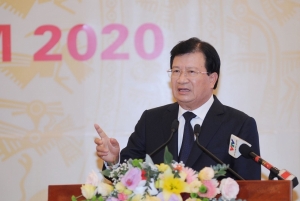 | Transport sector to focus on key national projects in 2020 The Ministry of Transport (MoT) on January 2 held a meeting to review the performance in 2019 and set tasks for 2020, with the development of key national projects to be a focus. |
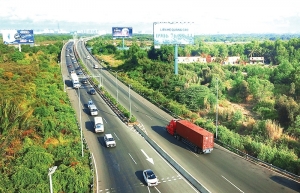 | Supporting policies key for revitalised transport sector The transport sector in Vietnam could face years of headaches due to capital increases and sluggishness, unless a bold forumla is created and lessons are learned from overseas when it comes to sector management. |
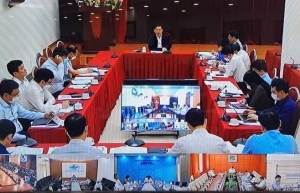 | First-quarter investment disbursement in transport sector misses expectations The transport sector’s disbursement of public investment in the first quarter of 2022 was yet to meet the expectations, according to Minister of Transport Nguyen Van The. |
What the stars mean:
★ Poor ★ ★ Promising ★★★ Good ★★★★ Very good ★★★★★ Exceptional
Related Contents
Latest News
More News
- Hermes joins Long Thanh cargo terminal development (February 04, 2026 | 15:59)
- SCG enhances production and distribution in Vietnam (February 04, 2026 | 08:00)
- UNIVACCO strengthens Asia expansion with Vietnam facility (February 03, 2026 | 08:00)
- Cai Mep Ha Port project wins approval with $1.95bn investment (February 02, 2026 | 16:17)
- Repositioning Vietnam in Asia’s manufacturing race (February 02, 2026 | 16:00)
- Manufacturing growth remains solid in early 2026 (February 02, 2026 | 15:28)
- Navigating venture capital trends across the continent (February 02, 2026 | 14:00)
- Motivations to achieve high growth (February 02, 2026 | 11:00)
- Capacity and regulations among British areas of expertise in IFCs (February 02, 2026 | 09:09)
- Transition underway in German investment across Vietnam (February 02, 2026 | 08:00)


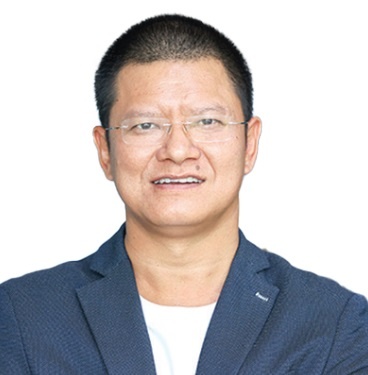

 Tag:
Tag:




















 Mobile Version
Mobile Version